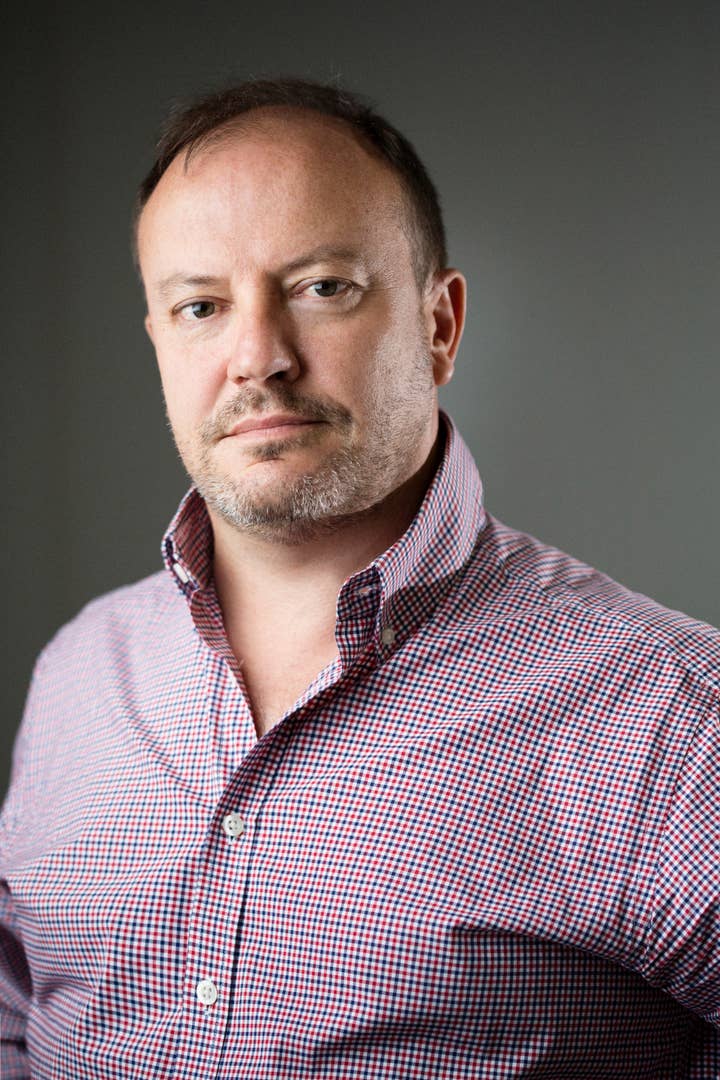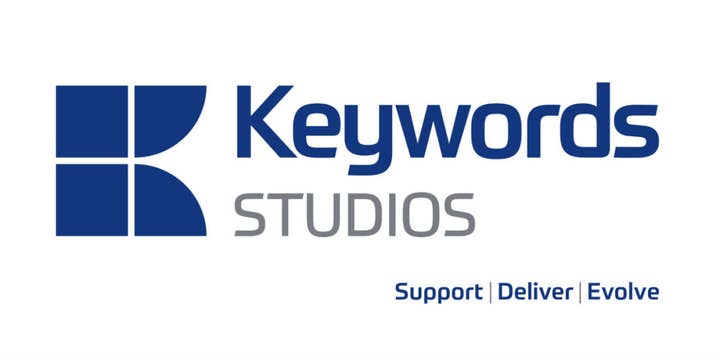Could games development transition to a complete outsource model?
Keywords Studios CEO Andrew Day explains why the company is so active with acquisitions
To those who work in making movies, how we build video games must look decidedly old-fashioned.
Back in the dawn of cinema, it wasn't unusual for the likes of Warner Bro.s to own studios, equipment and have production crew and even actors on permanent payroll. Today, up to 95 per cent of movies and TV programmes are outsourced, from the set designers to the VFX equipment - even the cameras are rented in.
That's not how the games industry works. The big publishers all operate their own studios, many even have their own testing departments, and these developers are full of all the expertise a company needs to put together a major title.
"Not everyone, but the longer established players tend to operate a model that is akin to the old movie studio model," acknowledges Andrew Day, CEO of one of the world's biggest video game outsourcing companies, Keywords Studios. "These companies own all the means for production. It looks a bit odd in today's day and age. The movie industry has been obviously established for a lot longer and it has transitioned. TV has transitioned as well. I think the games industry will transition to a complete outsource model.

"One of the reasons why it might not have done so yet is because the industry itself created the fragmentation that we're living with at the moment, and that fragmented landscape of service providers doesn't allow our clients to outsource in a strategic fashion. You have to have a degree of consolidation in the industry. The other barrier is the nature of the product itself. It is more complex than a movie. It is this weird mash-up of very high creative content, which looks a bit like a movie, and then there's very complex technology that sits underneath it all.
"The services industry has grown and is at a point where... well, it needs to consolidate more. But it can offer these services to the EAs and the Activisions of the world, and allow them to evolve into having a leaner structure."
Day believes there's a need for consolidation because, currently, game creators are having to partner with multiple different outsourcing companies for individual services and territories. He believes that once these companies start to merge together this will see a significant increase in game outsourcing. It's why Keywords is rarely out of the headlines, as it buys up yet another company - it's trying to make that consolidation happen.
"People pick up on the acquisitions. You're writing that Andrew Day has been out shopping again, but the story is a bit more interesting," he explains. "We've come from being a small, single-site operation to now having 42 locations around the globe. It is international and providing all sorts of services along the lifecycle of video games.
"We are not doing anything that we haven't told people we are doing. We have been very open right from 2009 when we first decided that this market looked a bit weird. Our clients were the likes of Microsoft and Sony, and they are very large global businesses. But when you looked at who they were relying on to get their games localised and tested, it was a very fragmented market. So country-by-country, language-by-language, there would be different providers for these services. It didn't take a genius businessman to work out that something needed to change.
"In this sort-of business, which is very people-centric, if the culture is misaligned, then it won't work"
"The industry is moving at such a pace. Today, you can see that a lot of the new entrants are not bothering to build their own QA departments, or localisation teams or art teams or even engineering... because all of these services are now available externally. So they can concentrate their efforts on what really matters to them - the game, the ideas and how to attract, retain and monetise players. To do all that, you don't necessarily need to own all the means of production.
"That's what we saw back in 2009, and it's starting to play out more and more. We are hoping and expecting to see a continued trend towards outsourcing, and a move away from what we would regard as tactical outsourcing - where it is, 'Oh my god, the game has got to come out in November, and we've only got 70 per cent of our art assets so we need to find someone to create some more warriors' or something. People are moving away from that mentality."
Keywords feels that consolidation is important and not just for the clients. It can offer better job security and support for the talent, too.
"It is through clubbing together as this Keywords family where it becomes easier to make investments," he says. "It is exactly what our clients need, because some of them are actually quite worried that there might not be enough artistic talent out there over the next couple of years.
"You can totally see why it is difficult for an individual art studio to go out and hire for a new artist, because they don't have any long-term contracts or real visibility from their own clients regarding what is coming next. So this fragmentation that we have in the industry is actually a bit unhealthy. By clubbing together, it means we can invest ahead of the curve, we can grow, we can recruit without necessarily having a firm contract... because we have better visibility and deeper engagement from our clients."

Keywords' sheer number of acquisitions is impressive, not just in terms of how much money it's spending, but because they appear to be working. Acquisitions can be incredibly difficult to manage, and many of them fail to work. So what's the Keywords secret?
"Either through design or luck, all of them have worked out. We had one that wobbled a bit, but it has come right again," Day says. "The most important thing, and we stick to this quite rigidly, is getting the cultural fit right. We look for businesses that behave like us. It is hard to describe exactly what the Keywords culture is, but when we see it, we know it. It definitely passes the smell test. You meet somebody, you have a conversation, you go to the offices and you can say to yourself that this is a Keywords business and these are Keywords people.
"In this sort-of business, which is very people-centric, if the culture is misaligned then it won't work."
Exactly what Keywords does with each acquired company varies, too. Sometimes it will implement some basic technology and reporting structures, and leave the company alone. In other cases, it goes in and swaps out the management. "It depends on the company," Day says. "And obviously what we're trying to do is provide career opportunities for the people that come into the family, so they can move around the globe within the organisation."
Keywords isn't finished expanding. It currently offers seven services in the form of art, engineering, audio, functional testing, localisation, localisation testing and customer support. And it wants to build on that.
"There are a range of services that are within our existing service lines that we want to expand," notes Day. "We are quite big in voice audio, particularly localised voice audio, but we have more to do in original language audio. We don't currently play in the whole space of music and sound effects, and arguably there is an opportunity there.
"Book publishers don't own their own printing presses... and they certainly don't own authors"
"In the art side of our business we are very strong with 3D art asset production and 2D to a lesser extent, but we are not huge in VFX. So there are opportunities there.
"Outside of our seven service lines, there are areas like analytics, which I am always keeping an eye on. I still think that more can be done within the games space in terms of using real-time analytics to influence player behaviour... You could look at the whole marketing area as well, and what happens around the launch of a game or DLC. Maybe there are a few more services we can provide in that space. But otherwise, we're definitely not going to go from seven service lines to 12 or anything like that. Maybe it goes as far as eight or nine."
The number of services that Keywords offers makes the firm look more akin to a fully functional co-developer than a simple outsource service provider, and that's something with which Day doesn't disagree. In fact, one of its recent acquisitions, Sperasoft, is an already established co-development team.
"Some of our clients will buy all of their testing from Keywords, so they just buy that service line," Day explains. "Others, and increasingly so, will buy services across the lifecycle of a game. So they'll buy art, they'll buy engineering, and QA, and localisation and so on. What we're doing with co-development is still delivering those services, but putting them together in a package.
"We can deliver a complete area of a game, a bit like Sperasoft has done with Assassin's Creed Origins. Sperasoft had responsibility for all the animal behaviour within Assassin's Creed Origins. That included art, it included AI, engineering and so on. Obviously, if they had been part of the Keywords family at the time, they could have possibly added audio, QA and all the other elements. So we see that a logical evolution. It's not new services as such; it's just a way of delivering our services in a different configuration."
The rise of games-as-a-service is also accelerating the growth in outsourcing, too. Keywords notes that companies increasingly require them to do the art for a new gun, or skin, or piece of armour, add a bit of descriptive text, translate it into all available languages, test it works and then rapidly deliver it back to the developer. If the games outsourcing industry can evolve and consolidate to support these demands, then perhaps it's inevitable that games development will start to change more rapidly.
"In most industries, a publisher is there to spot the interesting, upcoming author, or movie, and to financially back it to help it get to the point where it can be released," Day concludes. "Book publishers don't own their own printing presses... and they certainly don't own authors. Through necessity, the industry has grown the way it has, but I don't think it has to stay that way. And if there are more efficient methods that could be adopted through better use of outsourcing - and I don't just mean more outsourcing, I mean better outsourcing - then perhaps we can be structured more like the automotive industry, where there's mutual dependency between supplier and client... and we're working together like one organisation.
"If you look at the industry from the far, you would say that is the logical progression."








